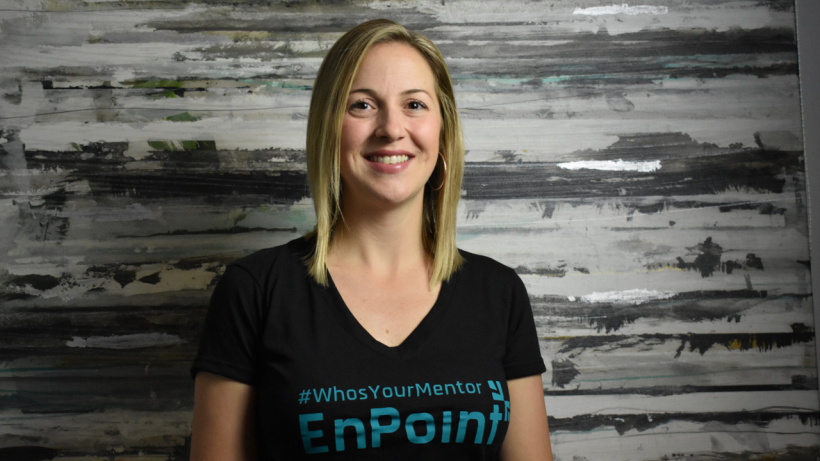After two years of incremental changes, mentorship software firm En Point is launching the first comprehensive rework of its online platform.
En Point’s software helps universities, companies, non-profits and professional associations to manage mentorship programs by logging the interactions between mentors and mentees. The metrics, which are chosen by each individual client organization, include how often people meet, for how long, and what they talk about.
CEO Chantal Brine said that a key benefit of the platform is its ease of use, compared to less specialized tools, such as spreadsheets.
“Clients could have anywhere from 15 matches to 500,” said Brine. “And trying to do that through excel spreadsheets, or pen and paper, as we hear often, is just a nightmare.”
Most of the company’s 24 existing clients have also hired En Point and Brine in a consulting capacity to help develop programs tailored to their individual needs.
Brine’s services include advice about how to structure mentorship programs to achieve specific goals—such as which topics mentors and mentees should spend time discussing—as well as workshops teaching participants networking skills.
But the latest iteration automates much of the program development using digital forms, which she said will make it possible to scale the company faster.
“Our software is intended to let a client input their mentorship details, such as what are the objectives of the program, how do they want to measure success?” said Brine. “It provides an intake, it provides matchmaking behind the scenes and then the management to ensure that everybody’s on track.”
En Point’s customers pay an annual license fee for a “white label” version of its product, meaning they can apply their own branding and modify the user experience.
Brine was inspired to start the company after the One Nova Scotia report in 2016 highlighted the province’s then-declining economic fortunes and the need to stem the outflow of educated workers.
After running a series of workshops for professional development co-operative EduNova that taught “soft skills,” serial entrepreneur Brine formally founded En Point and created the accompanying software service in 2018.
So far, about 10,000 people have used the platform.
When Brine consults for customers, she helps them choose which metrics to track, and how mentors and mentees should be matched.
“What’s interesting for us is that it was not intentionally a part of the business model,” she said. “It evolved because we found that clients were asking for that anyway. We found that it was one of the first and biggest obstacles to clients purchasing the software.”
The revised platform lets administrators enter the same details via a series of setup menus and then automatically matches pairs of users once they are added to their organization’s database. The more structured setup process is meant to let organizations design and roll out their programs without Brine’s help.
En Point’s clients, such as the Black Business Initiative, the Schulich School of Law at Dalhousie University and professional development co-op EduNova, are primarily located in Nova Scotia. But Brine expects the update to make it easier to acquire clients outside the province, such as Windmill Microlending—a national charity that recently signed on.
Chantal and her cousin Julia Brine—who is head of communications and client management—aim to hire three or four full-time employees by the end of 2020, including at least one salesperson. En Point also employs two co-op students each academic term, and one of the new, permanent hires will likely be a student.
En Point has not accepted venture capital investment and has no immediate plans to raise money, but the Brines said they are exploring other partnerships that could help the company expand its user-base.










